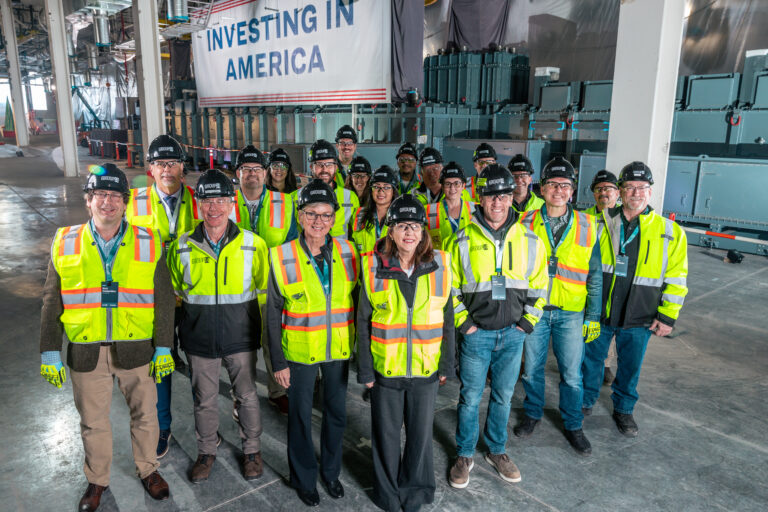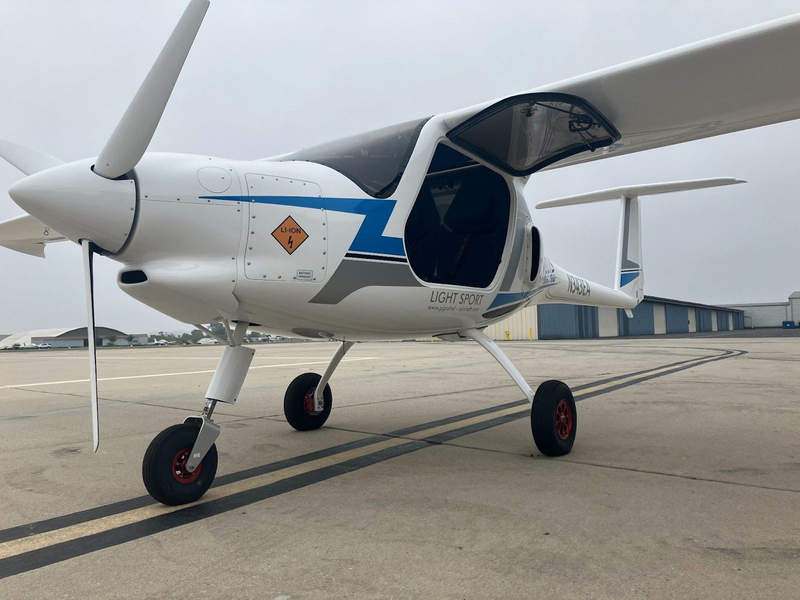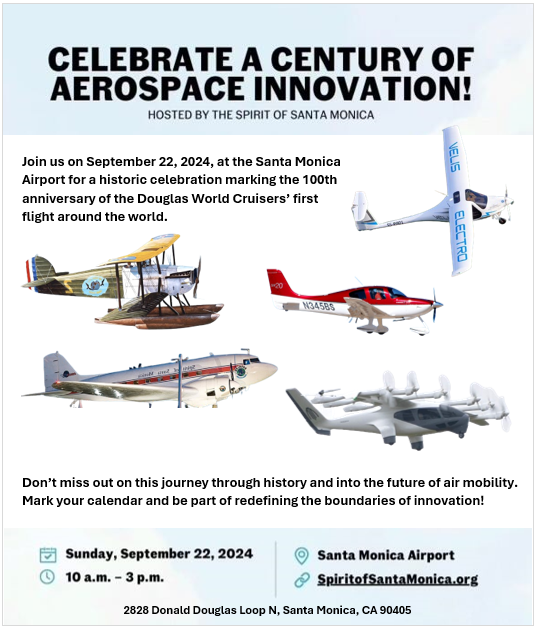U.S. Energy Secretary Jennifer Granholm, Washington Sen. Maria Cantwell and Washington Gov. Jay Inslee traveled to Eastern Washington Thursday to visit companies leading the state’s rapidly expanding battery hub.
Their tour included stops at Group14 Technologies and Sila, which are building factories that will produce next-generation materials designed to make lithium ion batteries — including those found in electric vehicles — more powerful and faster charging.
Both companies previously received $100 million grants created by the Bipartisan Infrastructure Law to fund the new facilities in Moses Lake. The U.S. Department of Energy awarded the funding.
The efforts are part of the Biden administration’s push to stoke domestic battery production — a sector that in recent decades had largely shifted overseas. As the world weans itself off fossil fuels, batteries will play increasingly important roles in electrifying automobiles, planes and boats, as well as providing back up power for homes, businesses and the power grid, among other applications.
“America’s competitiveness depends on next generation innovation and scaling that to a level that makes America competitive in the manufacturing sector,” Cantwell said at an event hosted by Sila.
Cantwell was a proponent of the 2021 infrastructure bill, as well as other legislation in recent years promoting U.S. tech innovation.
Roughly three hours from Seattle, Moses Lake has established itself as a center for low-carbon technologies, including batteries and green aviation. The region has access to clean, affordable energy and the town is home to REC Silicon, a company that recently restarted its production of silane, a gas that’s a precursor to the silicon used in the battery materials.
On the visit with Sila representatives, Granholm called Washington “the tip of the spear of where the country is going on clean energy” and applauded the “amazing” work being done in Moses Lake.
California-based Sila broke ground in Moses Lake in November on its first automotive-scale manufacturing facility, which should start producing a silicon anode material by 2025. At full capacity, the plant is expected to produce enough material for 1 million EVs.
On Thursday, Sila’s leaders announced a workforce training program to provide hands-on learning for local students looking to develop technical, mechanical, electrical and software skills. The company is partnering with Big Bend Community College and Columbia Basin Technical Skills Center, providing each with $1 million to help pay for new equipment and curriculum development.
Students completing the program will receive certification for entry-level operational and technical positions in manufacturing. Sila is also establishing internships.
Granholm praised the family-wage jobs that Sila and others are creating in the region. Young people will be able to pursue “a career path that has a mission,” she said, “and the mission, of course, being to heal the planet.”
The officials also visited Group14, which is constructing a commercial factory in Moses Lake dubbed Battery Active Materials or BAM-2.
The facility is comprised of two modules, the first of which is structurally finished and heavy equipment for manufacturing is being installed inside the five-story building. At the second module next door, concrete walls are up on the first and second floors, and the first pieces of major equipment are ready for installation.
Later this year, BAM-2 should start producing battery material, and the factory will have a 4,000 ton annual capacity — enough material for at least 200,000 electric vehicles, or 20 gigawatts of battery power.
Group14 is also completing construction of JV BAM in South Korea, which will be Asia’s largest factory for advanced silicon battery material.
A third company, OneD Battery Sciences, also broke ground in the Moses Lake in October. The startup is launching a smaller-scale facility aimed at pilot-scale production, with a target of producing 100 tons of silicon-graphite anode material annually, providing its partners with enough material for testing in EV batteries.






/cdn.vox-cdn.com/uploads/chorus_asset/file/25476438/Gen_3_Cube_Rendering.png)






